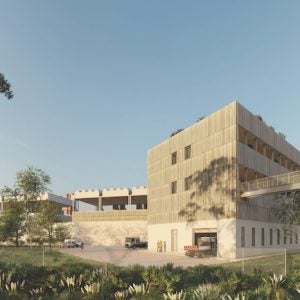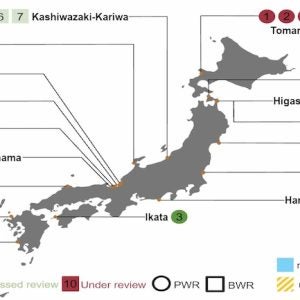As from 1 July, RWE PowerNet – high-speed Internet access through the power socket – has been commercially available in two German towns, Essen and Mulheim, with the expectation that the service will be extended to Oberhausen and Cologne by the end of the year. The transfer speed provided by RWE PowerNet is up to 2 MB/s, which is 30 times faster than ISDN.
Meanwhile RWE is planning to have another powerline offering, eHome Services, commercially available in Essen and Mulheim as from August. eHome Services will “make house automation and remote control of electrical appliances possible”, says RWE Powerline, a wholy owned subsidiary of Essen-based RWE Plus AG.
With RWE PowerNet, the user does not pay for the time he is online, but instead for the quantity of data transferred. Different packages are available for various user groups, ranging from a basic package at DM 49 per month, allowing 250 MB of data transfer in the month, up to a package for small businesses, providing 10 GB per month of capacity for a DM249 monthly fee (excluding the cost of the modem).
RWE PowerNet is “always on”, ie the user remains connected to the Internet permanently and is only charged when data are actually being transferred. There is no dialling in and logging off.
In a market trial started in May of last year, RWE PowerNet was tested by more than 200 private households and a school in Essen – with a very positive outcome.
A particular advantage of the PowerNet power socket based connection is that several people can use the Internet at once. RWE sees this as being particularly advantageous for schools, and is launching a school version of the service, called RWE PowerSchool. This allows school computers to be networked very simply and several classes to access the Internet at the same time via the power socket in their classroom. Each class effectively has its own dedicated connection.
Home service
RWE also has high expectations of its RWE eHome Services concept, a product which makes “entirely new forms of household automation and control of electrical appliances possible.” So, for example, even while still in the office, using a cell phone or the Internet you can turn up the heating, let down the roller shutters and turn on the light. RWE notes that, as a security measure, “simulated presence protects you from break-ins.” Remote surveillance of the house and special devices will also soon be possible.
RWE eHome Services can also make a contribution to saving energy, says RWE. It will in future be possible to programme and control radiators and appliances remotely. In the starter package, the user receives a central unit, the so-called Hometronic Manager, which makes it possible to control time settings and energy consumption.
The system can subsequently be expanded to any size. If the user wishes to carry out control and programming on the Internet, he uses the Website of RWE eHome Services. For control via telephone or cell phone, he is directed by means of a voice-actuated menu. The data he has input are transferred via an RWE Powerline server platform into the customer’s house. From there the control data go to the connected appliances, heaters, lamps, etc.
Structure
RWE has been working towards its powerline offerings since 1997. The company’s approach is to use the low voltage network only. The RWE system makes use of an internet protocol backbone network provided by mediaWays. The mediaWays internet router is connected by SDSL cable to the local substations. The data are then transferred on the low voltage network to homes and businesses.
The powerline communications technology at the heart of the RWE system has been supplied by Ascom of Switzerland. It meets the NB30 useage regulations in Germany, which govern threshold values for EM radiation in and around the cable.
Ascom is currently enjoying a boom in the demand for its technology, which is also being used in powerline communications projects by EnBW (Germany), Lina.Net (Iceland), Sydkraft (Sweden), TIWAG (Austria), with further projects planned in Japan, Australia and Chile. It has just embarked on mass production and bulk delivery of powerline products.
Elsewhere in Germany, Mannheim-based MVV Energie has been offering powerline telecommunications to customers in its region, using technology developed by the Israeli company, Main.net Ltd.
There are currently no plans to use high voltage transmission lines for data transfer. This is the “holy grail” of powerline communications, but so far it has proved extremely elusive.






